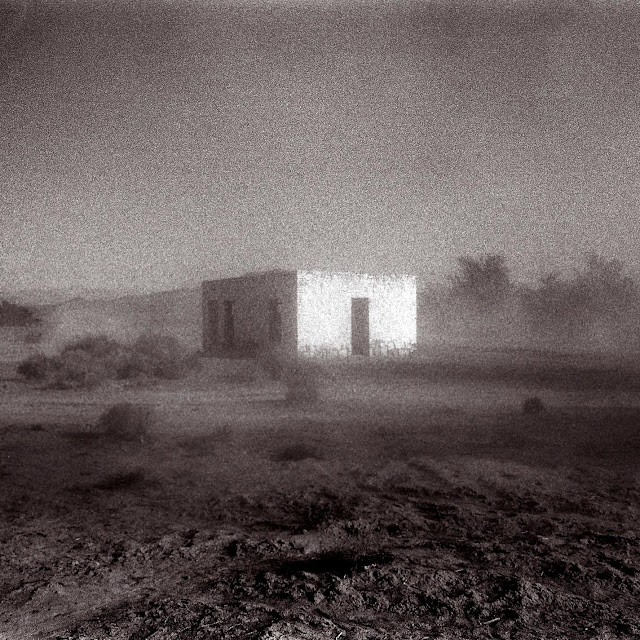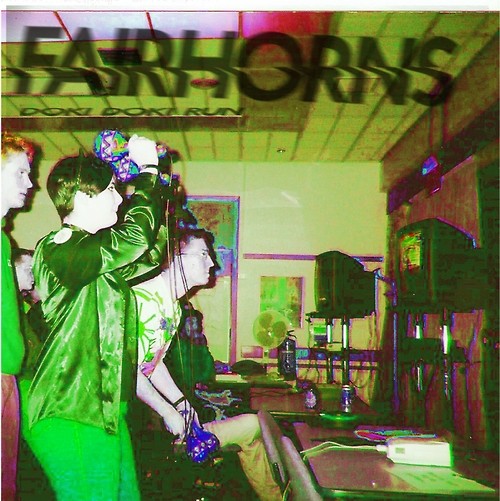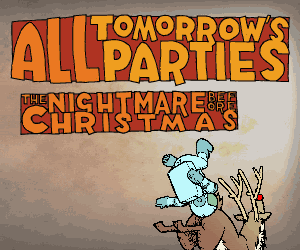
For from its very first seconds, the gay chirping of birds and the coursing of shallow stream aid in the creation of the verisimilitudinous atmosphere of the doziest of England's bucolic realms; the apt setting for the most malicious of Midsomer Murders. A church bell chimes; a crow caws; serenity reigns supreme. This civility is then drawn short by the most ominous of fanfares, before a quite magnificent church organ blurts a series of stentorian tones. It is The Golden Dawn and it heralds the opening of Dr Dee in oddly anti-Albarn fashion, for it conjures visualisations of enviably tranquil boarding house awakenings. Apple Carts meanwhile, trundling along in the shadow of this startlingly grandiose introduction, has him rolling around on rather more familiar ground as, benefitting from his inimitable acoustic melancholia, it immediately recalls The Good, The Bad & The Queen's Nature Springs. However it is but one of many points of contact with Albarn's globetrotting previous: Saturn proves redolent of more rudimentary D-Sides or perhaps even a sedate part never to have made Democrazy; the hushing koras of superlative track The Moon Song hark back to sparingly numbered days spent in Mali; the percussive insistence of the purely instrumental Preparation seems reflective of rhythmically irradiate instances within Kinshasa One Two. This ethnic infusion poses quite pertinently the debate of what it is to be British, or English contemporarily and as Albarn interweaves both a sense of multiculturalism and an irrelevance of background into the album, he seems to both celebrate and negate his 'Britishness' all at once.
Yet as Albarn to a certain degree maps out his past to effectuate his present, some strands of coherency become frayed as the seamster misplaces the needle in the mountainous haystacks of his creative psyche. The Marvelous Dream [sic] positively sounds like the precise equating of the remarkable songsmithery of Messrs Moore and Ranaldo whilst 9 Point Star (perhaps a continuation of the conceptualising of the five-point communist star that facilitated his first operatic attempt) features the sort of lackadaisical, scarcely tuned guitar dronage for which Sonic Youth became quite so universally famed. However it's proceeded by the initially homely yet swiftly horrid Temptation Comes In The Afternoon and the equally unlistenable Watching The Fire That Waltzed Away. Both are led by the sort of divisive voice for which Anthony Hegarty – and to a lesser extent Martyn Jacques – in turn came to prominence and indeed the two songs combine to come across as a disconcertingly chaotic descent into an irredeemable degeneracy.
Thus as both mood and stylistic endeavour swing as they may within the context of a soundtrack, Dr Dee feels indubitably like a percentile of this particular collaboration with director Rufus Norris. Albarn is of course no stranger to visual accompaniment, such was his wont throughout Gorillaz' existence although this aspect is here demonstrably absent with its audio alone never providing quite enough context to string the thing along. However one element remains immutable; immaculate; consummate and that is Albarn's voice: despite the subsumption of authentically operatic vocals it's his unmistakably unplaceable, rustic warble that imbues the record with its greatest relevance and never is it employed to more stunning effect than on the hymnal flush of O Spirit, Animate Us upon which his dulcet tones are perfectly layered to compose the impeccable harmonies of the most finely honed choir. A deferential ode to England Dr Dee may well be although devoid of depiction of pastures verdant and pleasant it ultimately feels just a little too 1-D.
























